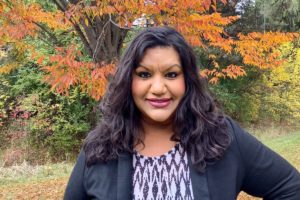
Fear and discomfort shouldn’t block anti-racism efforts in schools
Addressing racism in the classroom requires educators to ask hard questions of themselves, white discomfort, and the discarding of old traditions.

Addressing racism in the classroom requires educators to ask hard questions of themselves, white discomfort, and the discarding of old traditions.

What is it like to be a Black person in Canada? The question, posed to Faculty of Education Professor Carl E. James, was intended as a starting point for a frank discussion about anti-Black racism.

"I started my career as an elementary school teacher, and they were some of the most magical years of my life. Teaching for me has become a journey of self-discovery, an encounter with the self. Education is ultimately an endeavour in being more human. It demands of us an ongoing commitment to living and working from our complex and often contradictory parts - the magical parts, the scared parts, the joyful parts, the engaged parts, the ignorant parts and the resistant parts."